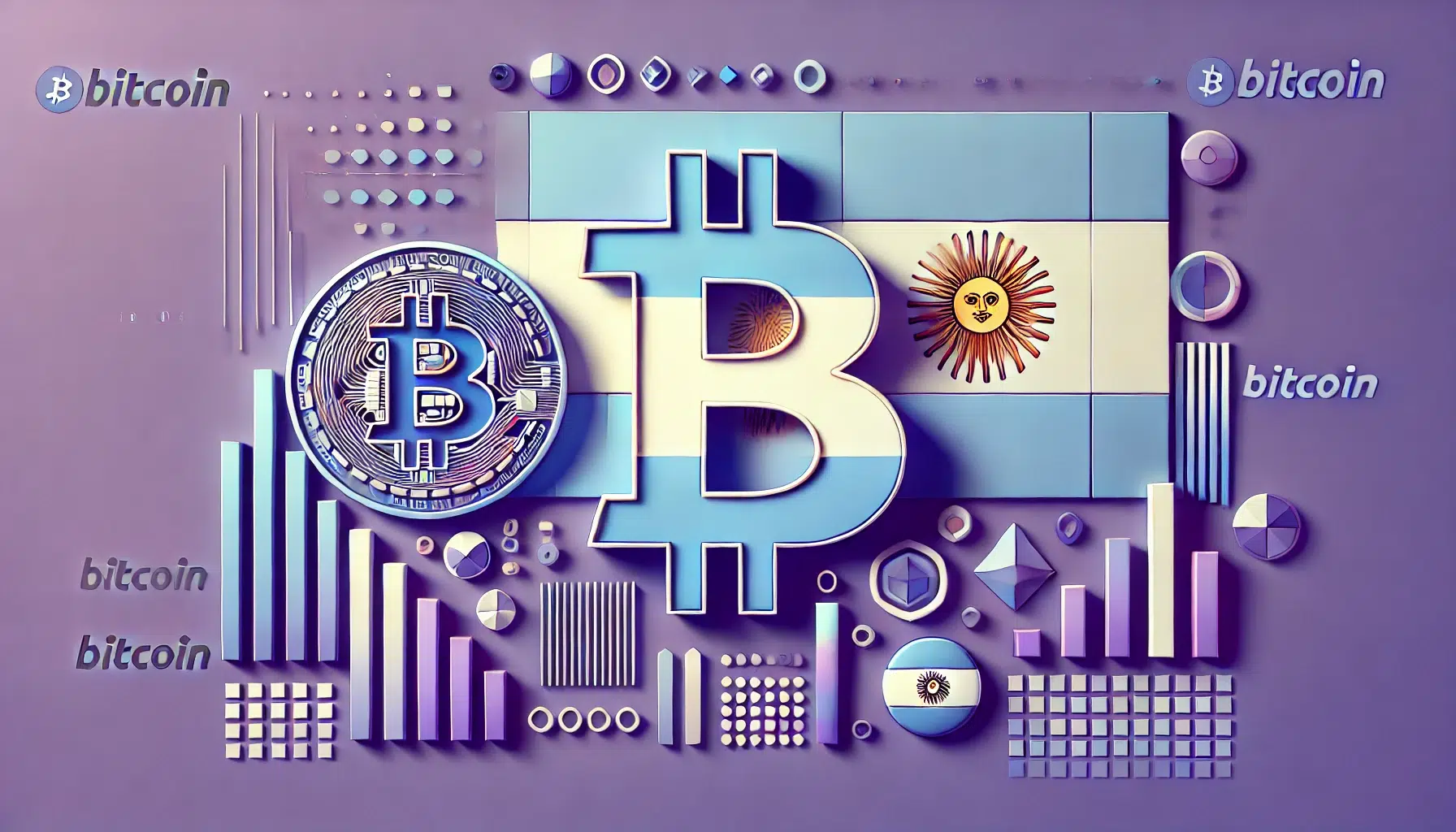 CaryptosHeadlines Media Has Launched Its Native Token CHT.
Airdrop Is Live For Everyone, Claim Instant 5000 CHT Tokens Worth Of $50 USDT.
Join the Airdrop at the official website,
CryptosHeadlinesToken.com
CaryptosHeadlines Media Has Launched Its Native Token CHT.
Airdrop Is Live For Everyone, Claim Instant 5000 CHT Tokens Worth Of $50 USDT.
Join the Airdrop at the official website,
CryptosHeadlinesToken.com
- Argentina explores integrating Bitcoin into national reserves, inspired by Trump’s proposal for a U.S. strategic Bitcoin reserve.
- President Javier Milei supports free currency competition, enabling citizens to freely save and trade cryptocurrencies by 2025.
Argentina is exploring the potential to establish a national Bitcoin reserve, a concept that has gained traction following a proposal by former U.S. President Donald Trump to create a strategic Bitcoin reserve in the United States.
Policy Changes and Economic Strategies in Argentina
Under the leadership of President Javier Milei, Argentina is aligning with a policy of free currency competition, which would allow citizens to freely save and trade with cryptocurrencies.
This policy change is anticipated alongside the removal of foreign exchange controls in 2025, potentially enabling banks and digital wallets to offer cryptocurrency-related products.
Modifications to the regulations would also allow the Central Bank of Argentina (BCRA) to include digital currencies in its reserves.
Potential for a National Bitcoin Reserve
The idea of integrating Bitcoin into Argentina’s national reserves is gaining momentum due to the favorable relationship between Milei and Trump, which could facilitate international partnerships and validate cryptocurrency adoption in the country.
There is already a legislative proposal suggesting that 1% of the national reserves be allocated to Bitcoin, reflecting a strategic approach to leveraging cryptocurrencies for economics.
“Argentina has the economic and political conditions to explore a strategic crypto reserve model. The growing interest of the population in cryptocurrencies, due to inflation and the loss of value of the peso, shows that Argentines are already ready to adopt innovative solutions,” María Fernanda Juppet, CEO of CryptoMKT.
Regulatory and Economic Implications
In anticipation of regulatory advancements, Argentina is expected to enact legislation by 2025, following the standards set by the Financial Action Task Force (FATF) and local regulations for Virtual Asset Service Providers (VASPs).
Additionally, Bitcoin Argentina, a non-profit organization, has proposed that the BCRA allow banks to hold and settle crypto assets collected by freelancers for exported services, offering a temporary solution that avoids the need for immediate conversion to fiat currency.
“Bitcoin, as a decentralized digital asset with limited and predictable issuance, would be an alternative to preserve value in those economies where inflation and devaluation are persistent,” the executive completes.
Adopting Bitcoin as part of Argentina’s reserves could provide strategic benefits by diversifying international reserves and reducing reliance on traditional currencies like the dollar and euro.
“Bitcoin’s decentralized nature and predictable limited issuance make it an appealing option for preserving value in economies experiencing inflation and currency devaluation,” explains Matías Reyes, Country Manager of TruBit in Argentina.
Reyes also notes that this move could send a positive signal to international markets and investors, highlighting Argentina’s modern and adaptive financial management approach.
“Bitcoin can be a valuable component within a country’s reserves, but its integration must be gradual, planned and part of a diversified strategy that considers both its opportunities and inherent risks,” he adds.
With careful planning and a focus on financial education and sustainability, Argentina could lead in the adoption of Bitcoin, potentially setting a precedent for other nations considering similar strategies.
“Argentina proved to be a benchmark in crypto adoption in Latin America. With the right approach, it can lead the region in the use of Bitcoin as a tool to improve economic stability. It is a path that requires courage, but also a lot of planning and transparency,” suggests.
In the past day, Bitcoin’s price has fluctuated between $92,852 USD and $95,638 USD, reflecting moderate volatility. Currently, Bitcoin is trading 13.74% below its all-time high of $108,135 USD, reached in December 2024.
Implications of the U.S. Bitcoin Strategic Reserve Proposal
Recent discussions on Twitter, notably by user @AIpe6571, highlight the significant implications of the United States considering a bitcoin strategic reserve. The concept suggests integrating bitcoin as part of the national reserves, which could set a precedent affecting global financial policies.
the concept of a bitcoin strategic reserve for the us has significant implications. if implemented, other nations such as japan may adopt similar strategies. this could result in a notable transformation in global finance. viewing bitcoin as a national asset could enhance its… https://t.co/cjdoDlnTgV
— Bored AIpe 6571 (@AIpe6571) January 1, 2025
Potential International Ripple Effects
The tweet suggests that the implementation of such a strategy by the U.S. could inspire other nations, like Japan, to consider similar approaches. This adoption could transform traditional global finance, shifting how nations perceive and integrate digital assets into their economic strategies.
BULLISH: Metaplanet CEO says that if the US adopts a Bitcoin strategic reserve, so will Japan, and other countries worldwide. pic.twitter.com/JReeVQ6ZP7
— Cointelegraph (@Cointelegraph) January 1, 2025
During Michael Saylor’s New Year’s Bitcoin party, Metaplanet’s CEO made a statement, captured on video, suggesting that if the United States were to adopt Bitcoin as part of its strategic reserves, Japan and other countries might follow suit, indicating a potential shift in global monetary policy.
In the video, the CEO, during a live interview, highlighted the possibility of Bitcoin transitioning from a speculative investment to a “sovereign treasure.”
This adoption could solidify Bitcoin’s status as a mainstream financial asset, driving governmental interest worldwide. Moreover, as mentioned in the video, this strategy could serve as an “inflation hedge,” following the lead of countries like Russia and Brazil.
Bitcoin (BTC) is currently priced at $93,945.07 USD, with a 24-hour trading volume of $29.36 billion USD. Over the past 24 hours, the price has declined by 1.73%, contributing to a weekly loss of 4.67%.













